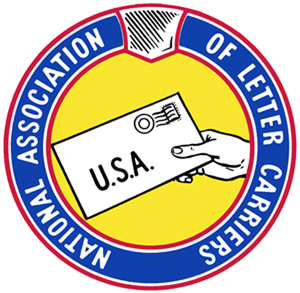Survey finds overwhelming support by Americans of both parties to fund the U.S. Postal Service during pandemic
WASHINGTON, May 4, 2020 /PRNewswire/ -- A new survey commissioned by the National Association of Letter Carriers found that, by an overwhelming margin, Americans support federal government funding that would allow the United States Postal Service to survive the devastating financial impact of the pandemic.
That is the bottom-line result of a bipartisan survey done among registered voters by two public opinion firms, one that does polling for Republican clients (North Star Opinion Research) and the other that conducts surveys for Democratic groups (Hart Research Associates).
The poll measured voter perceptions of the importance of the Postal Service and of how to deal with the plummeting revenue caused by the pandemic-related economic shutdown.
Among those surveyed, 92 percent want Congress to appropriate funds in the next round of financial relief legislation to allow the USPS to maintain operations through the coronavirus crisis. That includes 90 percent of Republicans, 83 percent of Independents, 96 percent of Democrats, 90 percent of rural voters, 92 percent of non-college whites, and 94 percent of retirees.
One striking feature of the polling is the lack of any sharp divergence among Republicans, Democrats and Independents; among rural or urban voters; or among regions of the country. Support both for the Postal Service and for temporary funding to help it weather the pandemic-related drop in funding is extremely strong among all partisan, demographic and regional categories.
The postmaster general has stated that without emergency relief funding, the Postal Service could run out of money by the fall. The economic situation has led to government relief programs for various sectors, including airlines, small businesses and hotels, but not to similar assistance for the Postal Service, which also relies on earned revenue for its operations. The USPS does not receive taxpayer funding.
By 78 percent to 22 percent, voters prefer financial aid over requiring the USPS to significantly increase rates. That includes margins of 74 to 26 percent among Republicans and 81 to 19 among rural voters.
Among factors voters cited were the Postal Service's delivery of prescription medicines, bill payments and online purchases, along with its role now in helping the country fight the pandemic, including delivering test kits and other supplies.
The poll showed that voters across the board—of all demographics and party affiliations; all regions of the country; and rural, urban, and suburban areas—overwhelmingly favor the appropriation of funds vs. loans to get the Postal Service through the economic shutdown.
That was the case even when respondents were presented a counterargument stating that the USPS' financial problems predate the pandemic and repeating the mistaken idea that they are "caused by charging package delivery rates that are too low." Even in that case, two-thirds of those polled support providing "direct funding to the Postal Service during the crisis."
The results reflect a broad consensus that the mail and package service provided by the USPS is important, a sense shared by 94 percent of those polled. Nearly two-thirds (64 percent) rate it very important. The Midwest leads with 95 percent of residents agreeing. As far as political affiliation, 95 percent of Democrats regard the Postal Service as important, 92 percent of Republicans, and 91 percent of Independents. Rural and suburban voters share that sentiment to the tune of 94 percent, slightly higher than urban voters.
The national online survey of 804 registered voters, conducted from April 10 to April 12, has a margin of error of plus or minus 3.5 percent.
To read a memorandum on the poll results prepared by Hart Research and North Star Opinion Research, visit: https://heroesdelivering.com.
SOURCE National Association of Letter Carriers

WANT YOUR COMPANY'S NEWS FEATURED ON PRNEWSWIRE.COM?
Newsrooms &
Influencers
Digital Media
Outlets
Journalists
Opted In





Share this article